Briefs/ Indian Views on Issues before U.S. Election/ Indian Impact on Artificial Intelligence/ Book Matters.

WHO, WHAT, WHERE, WHEN, & WHY
Arundhati Roy, the Booker Prize-winning novelist who’s also known for her punchy essays and fearless activism, has won the PEN Pinter Prize 2024, which she’ll receive at the British Library in London. Roy will pick a Writer of Courage as her co-winner from a shortlist provided by English PEN. She continues to be persecuted. Currently, for remarks Roy made 14 years ago, she’s being prosecuted under India’s harsh anti-terror law.
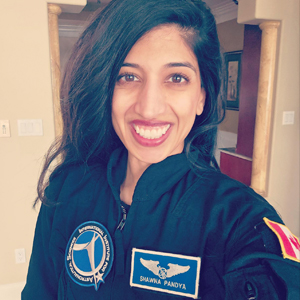
Shawna Pandya, a physician, will head to space in 2026 as Canada’s first female commercial astronaut (and fourth female astronaut) as part of an all-female crew. This mission is a partnership between Virgin Galactic and the International Institute of Aeronautical Sciences (IIAS), where she is space medicine director. Pandya, who lives in Alberta, also earned degrees in neuroscience, wellness, and space entrepreneurship.
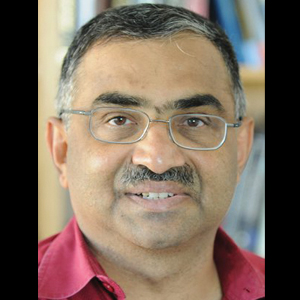
Shrinivas Kulkarni is the winner of the 2024 Shaw Prize in Astronomy for his groundbreaking work on millisecond pulsars, gamma-ray bursts, supernovae, and other variable or transient astronomical objects. At Caltech since 1985, he is now George Ellery Hale Professor of Astronomy and Planetary Sciences. The Hong Kong-based Shaw Prize is worth $1.2 million. The Indian-born Kulkarni earned his PhD from UC Berkeley.
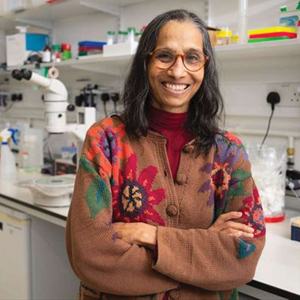
Lalitha Ramakrishnan has won the 2024 Robert Koch Prize, one of Germany’s most prestigious scientific awards, for her research on the molecular mechanisms that can lead to tuberculosis. Educated in India, where she did medicine, and the U.S., where she did her residency and a PhD in immunology at Tufts, Ramakrishnan is now an immunology and infectious diseases professor at the University of Cambridge.
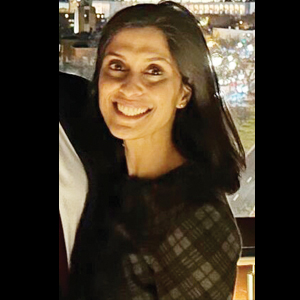
Usha Chilukuri Vance is married to J.D. Vance, the GOP’s nominee for VP. The daughter of Indian immigrants, she grew up in San Diego and went to Yale, where she graduated summa cum laude with a BA in history. She also earned a JD from Yale Law School, and an MPhil from Cambridge as a Gates Cambridge Scholar. She clerked for two Supreme Court justices (one got confirmed later), and has worked as a trial lawyer.
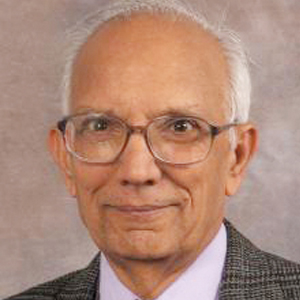
Rattan Lal, almost 80, is still receiving awards. The Distinguished University Professor of Soil Science at Ohio State University is one of three winners of this year’s Gulbenkian Prize for Humanity. His research focuses on carbon sequestration and the removal of atmospheric carbon. Lal shared this Portugal-based prize with Andhra Pradesh Community-Managed Natural Farming (APCNF) in India and SEKEM in Egypt.
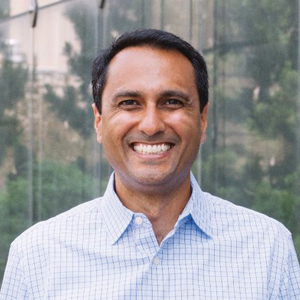
Eboo Patel, founder and president of Interfaith America, is one of 24 Great Americans picked by the Carnegie Corporation of New York this year. The other Indian Americans are Nobel laureate Abhijit Banerjee, an economics professor at MIT; Ashish Kumar Jha, dean of the School of Public Health at Brown; Premal Shah, co-founder of the nonprofit Kiva; and Raj Panjabi, a health care entrepreneur and former White House official.
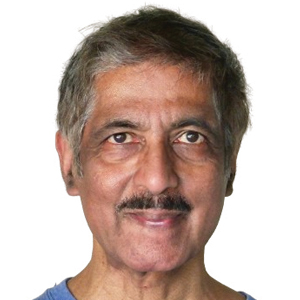
Venkatesan Sundaresan, a plant biologist, won the 2024 Wolf Prize in Agriculture. His research on crop and plant improvement led to the development of synthetic apomixis, a cost-effective and less time-consuming way to produce clonal seeds from hybrid plants. The Indian-born Sundaresan, who earned his PhD from Harvard, teaches at UC Davis. The Wolf Prize, worth $100,000, is seen as the Nobel Prize in agriculture.
>> >> >> >>
INDIAN VIEWS ON ISSUES BEFORE U.S. ELECTION
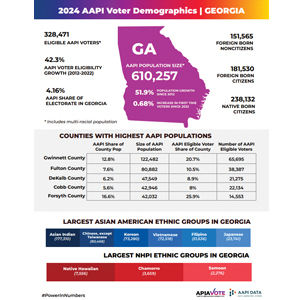 Only half of Indian Americans see gun control as an extremely important issue in deciding how to vote in the upcoming U.S. election, according to a recent 2024 Asian American Voter Survey. If it seems low, that percentage is actually the highest among all Asian American subgroups (for Asians overall, it’s 42%). What’s the issue that animates Indian Americans the most in how they’ll vote in November? It’s not immigration (only 37%) or racism and racial discrimination (36%), and it’s not inflation or healthcare (51% for both). Other issues like reproductive rights and abortion (32%) and the environment and climate change (33%) are even less important. Even crime is higher (47%). But what Indian Americans are most concerned about are jobs and the economy (58%).
Only half of Indian Americans see gun control as an extremely important issue in deciding how to vote in the upcoming U.S. election, according to a recent 2024 Asian American Voter Survey. If it seems low, that percentage is actually the highest among all Asian American subgroups (for Asians overall, it’s 42%). What’s the issue that animates Indian Americans the most in how they’ll vote in November? It’s not immigration (only 37%) or racism and racial discrimination (36%), and it’s not inflation or healthcare (51% for both). Other issues like reproductive rights and abortion (32%) and the environment and climate change (33%) are even less important. Even crime is higher (47%). But what Indian Americans are most concerned about are jobs and the economy (58%).
Who does a better job on this last issue, according to them? Democrats, although only 36% think that way (28% think the GOP does better on the economy and jobs).
Indian Americans, in fact, think Democrats do a better job than Republicans on every issue except one, according to the survey. The biggest difference was on the issue of abortion and reproductive rights. While 50% think Democrats do a better job, only 15% think Republicans do a better job. The figures are pretty close for national security (Democrats: 32%, Republicans: 27%), but there’s a divergence when it comes to the environment and climate change (Democrats: 42%, Republicans: 15%), and racism and racial discrimination (Democrats: 44%, Republicans: 15%). The only exception is the Israel-Gaza conflict. While only 19% of Indian Americans think Democrats do a better job on this issue, 23% think Republicans do a better job.
/|\ /| \ /|\ /| \
INDIAN IMPACT ON ARTIFICIAL INTELLIGENCE
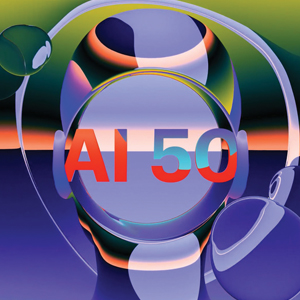
What are some predictions about AI, the hottest technological trend today? Alphabet’s Sundar Pichai told The Wall Street Journal that “AI could be more profound than the invention of fire or electricity.” Fire and electricity were discovered, one could argue, not invented. And then there’s Vinod Khosla of Khosla Ventures, a venture-capital firm. He predicted that, within a decade, AI will be capable of doing “80% of 80% of the jobs that we know of today,” according to the paper. So there’s hype, high anxiety, and hope. Indians are making big contributions. Forbes included six Indian American-led firms on its 2024 AI 50 list. Abridge, founded in Pittsburgh by Shiv Rao, handles the paperwork of physicians, enabling them to spend more time on patients. San Francisco-based Baseten, headed by Tuhin Srivastava, assists with the workflow of businesses. Codieum, led by Varun Mohan in Mountain View, California, can autogenerate chunks of code in 70 languages, allowing businesses to process their orders more smoothly.
Glean, founded by Arvind Jain in Palo Alto, uses AI to provide answers to company-related questions. Perplexity, headed by Aravind Srinivas in San Francisco, is a conversational search engine that gives customized answers to queries. Also in the same city is Together AI, founded by Vipul Ved Prakash. More than 45,000 developers use it to deploy open-source generative models. In 2023, the inaugural TIME 100 AI list included eleven Indian-origin figures who’re making a difference in this field. Speaking of Sundar Pichai, he’s among the 22 inaugural members of the AI Safety and Security Board in the U.S. The other Indian American members are Arvind Krishna, Satya Nadella, Arati Prabhakar, and Santanu Narayen.
& & & & & & & & & &
BOOK MATTERS
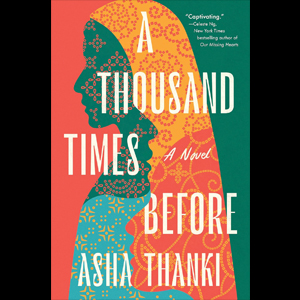
A Thousand Times Before (Viking), by Asha Thanki. With an intriguing secret at its heart, this debut novel explores the relationships between mothers and daughters across three generations. It’s a speculative tale, but the novel is also a family drama that takes readers from India’s Partition era to present-day New York. The secret binding the family spills out when Ayukta and Nadya, the couple at the center, decide to have a baby. What’s the secret? The women in the family inherit a tapestry that allows each generation to experience the memories of previous generations. Nadya, invited into this lineage by Ayukta, is now able to relive the past. While these women can reshape their lives as well, the power comes with risks and responsibilities. The novel “explores Indian politics, the different ways to love a person, and the complexities of family: what we inherit, what we build for ourselves, and what we choose to keep,” notes Shelf Awareness. Thanki, who is an essayist as well, received her MFA from the University of Minnesota.
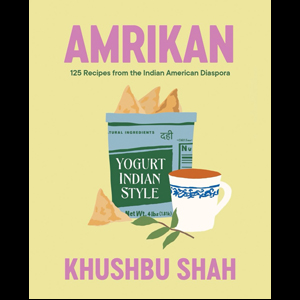
Amrikan: 125 Recipes from the Indian American Diaspora (Norton), by Khushbu Shah. This book is by a food writer who was the restaurant editor at Food & Wine magazine. Shah’s delectable recipes, which she presents along with her essays, “will dazzle anyone’s palate,” says the host of Netflix’s Somebody Feed Phil. Besides learning how to make enticing desi dishes like Egg and Vegetable Kottu Parotta, readers will find recipes for cross-cultural concoctions like Saag Paneer Lasgna, Pani Puri Mojitos, and Achari Paneer Pizza. For dessert, there is Saffron Chia Seed Pudding. Shah busts myths about Indian food (such as it’s only curry or always spicy or complicated to prepare) and offers helpful tips (embrace your freezer and get an Instant Pot). As a bonus, readers will own a gorgeously produced book. “Categorizing my recipes as anything but ‘Indian’ would do a disservice to the equally vibrant and flavor-packed recipes of the Pakistani and Bangladeshi American diasporas (not to mention those of Sri Lanka, Nepal, and beyond),” Shah says.
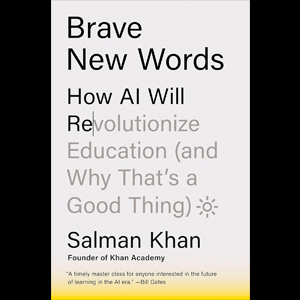
Brave New Words: How AI Will Revolutionize Education (and Why That’s a Good Thing) (Viking), by Salman Khan. The founder of Khan Academy introduces Khanmigo, the AI-driven platform it developed in collaboration with OpenAI. Anybody can ask Khanmigo questions (as Khan does in the book) and use it as an interactive tutor on a variety of subjects. While this informal Socratic method, embraced by educators from Montessori to Krishnamurti, has a long and respectable history, does this mean machines will replace humans? Unlikely. AI is more like a TA (teaching assistant) who makes the job easier for teachers, allowing them to embrace a broader role. That’s the idea, anyway. Khan sees the potential drawbacks of generative AI, but he’s an optimist who thinks these risks can be reduced with the right approach. “Used properly, it would positively affect how teachers planned, instructed, and graded,” he writes, adding that AI has the potential to help us tackle long-standing problems in education.
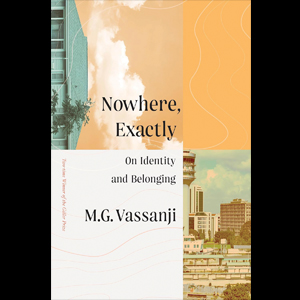
Nowhere, Exactly: On Identity and Belonging (Doubleday Canada), by M.G. Vassanji. A two-time recipient of the Scotiabank Giller Prize for fiction and a winner of the Governor General’s Literary Award for nonfiction, Vassanji is one of Canada’s most distinguished writers. Born in Kenya and raised in Tanzania, Vassanji, who traces his roots to Gujarat, has lived in Canada since 1980. And he studied in the U.S. at MIT and UPenn, where he earned his PhD. Vassanji praises his adoptive country for having come a long way since 1980, but he notes, “Assimilation is not a simple, one-way process, for I bring along cultures, histories, and experiences from elsewhere that do not have European roots.” In this collection of essays, he shows how belonging is not just about fitting in and how identity is the opposite of rigidity. There’s no gain without loss. Vassanji shares thoughts on, among other topics, Canadian identity, Gandhi’s complicated legacy, Africa, patriotism and loyalty, his identity as a writer, India, and the impact of George Floyd.
Enjoyed reading Khabar magazine? Subscribe to Khabar and get a full digital copy of this Indian-American community magazine.
blog comments powered by Disqus










